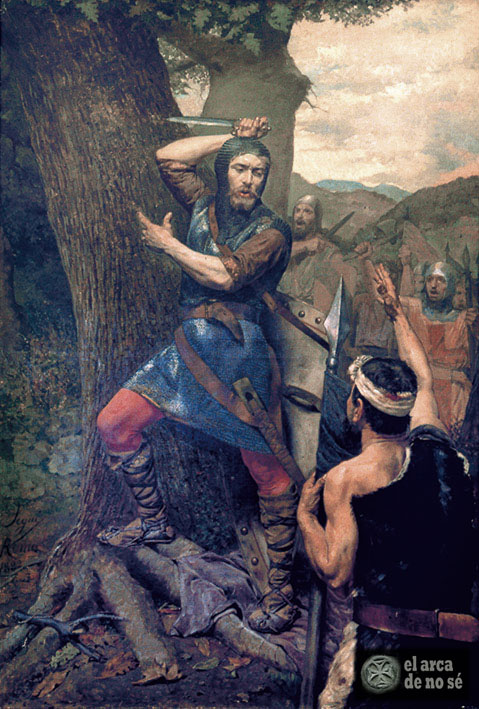The tree of Gernika is easily the most famous tree in the Basque Country. Once the gathering site where important decisions were made and kings had to take oaths to preserve Basque liberties, it has remained an icon and cultural symbol of the Basque people. However, it is not the only important tree in the country. Trees are intertwined in the politics, history, and culture of the Basques from pre-historic times.

- The tree of Gernika is only one of several trees that served as gathering points for politics. In Bizkaia alone, there are at least four other trees where meetings were held and sovereigns received. The people of Encartaciones met under the oak of Abellaneda while those of the Duranguesado met under the oak of Gerediaga. According to the Fueros of Bizkaia, the people were to receive the Lord of Bizkaia under the tree of Aretxabalagana.
- Living in such a mountainous and wooded terrain, the Basques clearly had a close relationship with trees. This is exemplified by a phrase recorded by Basque priest, musician, writer and academic Resurrección María de Azkue at the beginning of the 20th century: “Guk botako zaitugu eta barkatu isuzu” (“we will cut you down; forgive us”).
- While not a lot is known about pre-historic Basque beliefs, mostly because they didn’t write much down, a little comes to use from the times of Aquitaine. The Aquitaines are now thought to be a cultural ancestor to the modern Basques. In inscriptions left in what is now Gascony, they mention a number of gods related to trees. These include Sexarbori (six trees in Latin), Fagus (beech in Latin), Abellion (apple tree in Gaulish), Areix(o) (oak in Basque), Artahe (evergreen oak in Basque) and Leheren (pinein Basque). Not much is known about these deities.
- Trees are also connected to the legends of the Basque Country. For example, way back in the 9th century, the Basques, under the leadership of the mythical Jaun Zuria, were fighting the Leonese army. In the battle of Padura, they chased the Leonese to Luyando, in Araba. There they stuck a sword in a tree and promised to follow Jaun Zuria there whenever needed. That tree, Árbol Malato (in Basque, Malato Zuhaitza) or Árbol Gafo, marks the boundary of the Lordship of Bizkaia.
Discover more from Buber's Basque Page
Subscribe to get the latest posts sent to your email.

